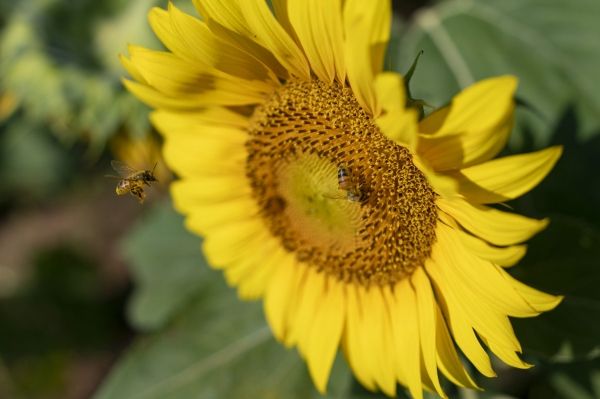Pollinators serve a great purpose in the agriculture world. Without them, humans and animals would have little to no food at all.
Texas A&M AgriLife researcher Juliana Rangel, director of the Texas A&M Honey Bee Lab and associate professor of apiculture in the Texas A&M University College of Agriculture & Life Sciences Department of Entomology, explains the impact that such typically small animals and insects play in the role of our food supply.
To put it in perspective, Rangel explains that about 75% of plants rely on either animal or insect pollination. Pollination, which is the transfer of pollen from the male germplasm of a flower to the stigma of another flower, often creates a seed that will later turn into a crop like a fruit, vegetable or nut. The other 25% of pollination typically comes from natural elements like wind and water.
Continue reading at Texas A&M University
Image via Texas A&M University


